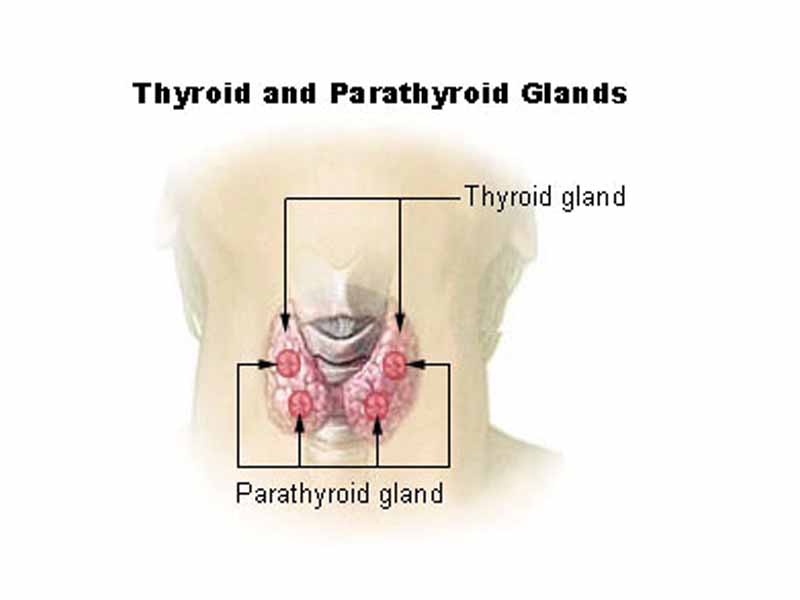Interdisciplinary Note (8 of 36)
The thyroid produces triiodothyronine (T3), thyroxine (T4), and calcitonin. T3 and T4 are derived from the amino acid tyrosine. T3 and T4, both released in response to thyroid stimulating hormone from the anterior pituitary gland, sometimes called thyrotropic hormone. The general effect of these hormones is to speed the metabolic rate. T3 and T4 regulates O2 consumption and carbohydrate, protein, and fat metabolism as well as heat production.
Another thyroid hormone, calcitonin, reduced blood calcium. Calcitonin inhibits osteoclasts and stimulates osteoblasts, so less bone is broken down and less calcium released. Calcitonin works in opposition to parathyroid hormone.
